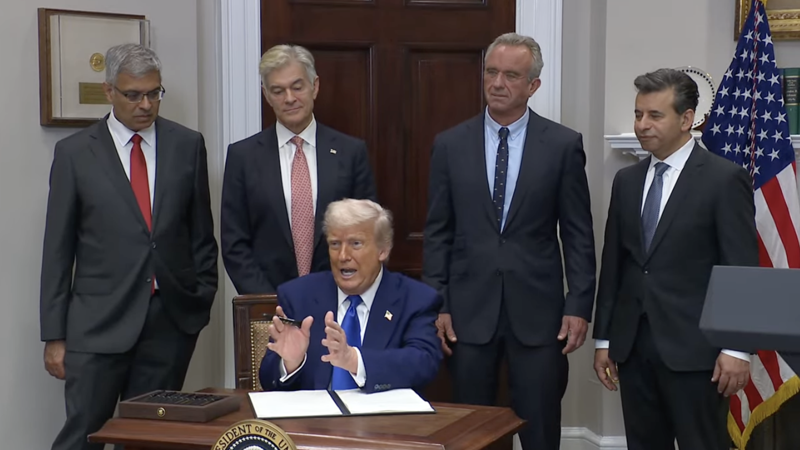European Union leaders must open the 27-nation bloc to trade with the U.S. or face tariffs, President Donald Trump says.
“I have just been informed that the E.U. has called to quickly establish meeting dates,” Trump wrote in a social media post.
Trump stirred up fresh trade tensions on Friday by threatening the EU with 50% tariffs on imported goods, which would start in June. Over the weekend, Trump extended the deadline for the EU by a week, giving both sides more time to reach a deal.
“I was extremely satisfied with the 50% Tariff allotment on the European Union, especially since they were slow walking (to put it mildly!), our negotiations with them,” Trump wrote. “Remember, I am empowered to ‘SET A DEAL’ for Trade into the United States if we are unable to make a deal, or are treated unfairly.”
Trump was able to reach a limited trade deal much faster with the United Kingdom, which has a much lower trade deficit with the U.S. than the EU.
The EU and the U.S. exchange nearly $1 trillion worth of goods each year. In 2024, U.S. goods exports to the European Union were $370.2 billion, and U.S. goods imports from the European Union totaled $605.8 billion. The U.S. goods trade deficit with the European Union was $235.6 billion in 2024.
Much of what the U.S. buys from the EU is pharmaceuticals. The bloc shipped $127 billion worth of pharmaceuticals to the U.S. in 2024, the single largest category of trade between the U.S. and the EU.
Trump has said that he wants to return more of the pharmaceutical industry to the U.S. He has repeatedly talked about tariffs on pharmaceuticals, although he exempted drugs from the reciprocal tariffs he announced (and then suspended) in early April.
Tariffs on drugs might not translate into higher prices for consumers, according to a Harvard Business Review report from Marta Wosińska and David Blumenthal.
“Contrary to expectations, a much-feared side effect of tariffs – higher prices – may not result from tariffs on branded drugs at least in the next year or two. One reason is that manufacturers have shifted substantial inventory to the United States in case tariffs are imposed,” the report noted.
Wosińska and Blumenthal also noted that “the exodus of pharmaceutical companies to Ireland, presumably for tax purposes, seems particularly frustrating for the current administration. Few branded drugs are manufactured in China or India, where there are cost advantages but not tax or workforce advantages.”
“The national security considerations are stronger for generic drugs,” they noted. “That’s because China’s role in drug manufacturing is growing and it is a dominant supplier of key starting materials and auxiliary materials in the chemically synthesized generics.”
U.S. stocks sunk Friday after Trump’s tariff threat, but bounced back Monday after Trump agreed to a delay with the EU over the weekend.
Economists, businesses and some publicly traded companies have warned that tariffs could raise prices on a wide range of consumer products.
Trump has said he wants to use tariffs to restore manufacturing jobs lost to lower-wage countries in decades past, shift the tax burden away from U.S. families, and pay down the national debt.







